4 Ways to Empower Your Team to Step Up in a Crisis
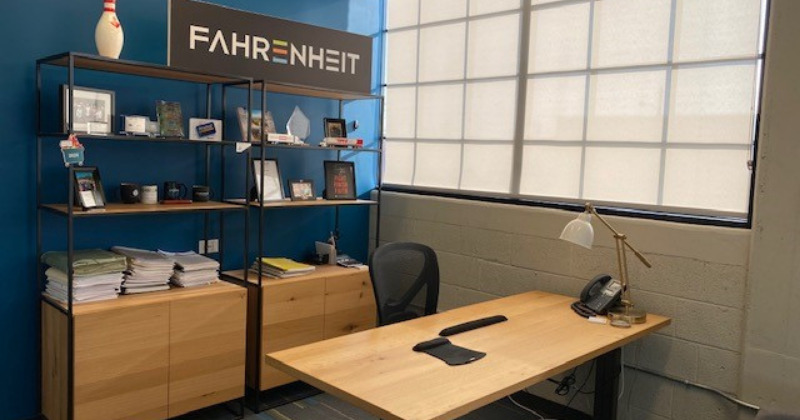
Is your team empowered to step up in a crisis?
Is it ready to take charge on a moment’s notice?
Is it set up to advance daily business when your chair is unexpectedly empty?
Is it really?
As a leader, I had the opportunity to find out for myself when I got COVID and was forced to completely shut down. Immediately. No transition meetings. No phone calls. No emails. Full stop. One moment I was engaged, available, responsive, involved. And the next, not at all. It was a transformational moment for me, for the business and for our team.
Throughout my experience, I truly learned what it really means to empower a team to continue advancing the business without one of its leaders. Fortunately for Fahrenheit, our team didn’t miss a beat when I went off the grid. And while it feels lucky, luck really had nothing to do with it. Fortunately, I have a great partner and Co-CEO, Rich Reinecke. Many organizations do not have that luxury.
As I’ve had a chance to reflect on the experience, I’ve realized the careful cultivation of 4 key factors proved essential to our success. And if your team shows up to the office one day to find an unexpectedly empty chair in your office, the 4 factors will also prove essential to yours.
4 WAYS TO EMPOWER YOUR TEAM TO STEP UP IN A CRISIS
What can you learn from us about empowering your team to step up in a crisis? When the chips were down, the team at Fahrenheit was able to rise to the occasion because of 4 specific factors we already had in place. In order to ensure your team is ready to continue advancing the business without you, these 4 key factors are absolutely mission critical to empowering your team to step up in a crisis — COVID or otherwise.
#1. DEVELOP STRATEGIC ROLES TO SUPPORT FOCUS AREAS
Question To Ask: Have I created roles critical to running and growing the business?
Since Fahrenheit was launched in 2009 with two co-founders and one employee, we have been fortunate to experience exponential growth. At our 10-year anniversary, a natural reflection point for businesses, we took a deep dive into how best to continue to invest and grow. We embarked on a strategic journey to identify the roles that would support our growth and allow us to continue scaling the business. We created the positions, defined their responsibilities, and hired the right people to do the work (learn more about that in #2). Each area of the business critical to our success has its own champion, and that champion knows what needs to be done.
The benefit: When each team member understands what they’re responsible for, their focus is clear — whether someone is steering the ship or not. And, if I may mix metaphors, because we’ve got all the bases covered with specific key roles, we have no gaps in our daily operations.
#2. HIRE THE RIGHT PEOPLE
Question to Ask: Do I have the right people in place to get the job done?
As Jim Collins tells us in his legendary leadership book Good to Great, great organizations make sure they have the right people on the bus — and in the right seats — to move forward. At Fahrenheit, we identified the right seats as part of our strategic assessment and planning (detailed in #1 above). For us, the “right” people for those seats are highly capable, experienced, hands-on self-starters with high levels of personal accountability. Our core values and the “why” that defines our culture also help us define the right people for Fahrenheit. In fact, we incorporate our core values into everything we do, including hanging them prominently in our office space.
The benefit: The Fahrenheit team was ready to roll up their sleeves and step in when I stepped out because that’s core to who they are and how they operate every day. Not a single person on our team needs their hand held to get their job done.
#3. FOSTER AN ENTREPRENEURIAL MINDSET
Question to Ask: Does my team have the freedom to make mistakes?
The entrepreneurial mindset is built on speed and failure. Yes, failure. Not only moving fast to embrace new opportunities and solve challenges, but failing fast — and learning fast. The only way to learn from failure is to make mistakes. The entrepreneurial mindset is one of our core values for a reason. Our team is empowered to make mistakes within our intentional culture of growth and improvement. We say it, we live it, and, most importantly, we support it with actions as well as words. We have long said Fahrenheit is one experiment after another!
The benefit: A supportive environment is freeing, and our team has that freedom every day. When there is no paralysis from fear of making the wrong decision, your team will make decisions — on their own, without input. And those decisions will take the company forward.
#4. BUILD A STRONG SENSE OF COMMUNITY
Question to Ask: Is my team in it to win it — together?
At Fahrenheit, we’ve worked hard to create a culture that embraces and prioritizes the idea of community. It may sound hokey, but we’re truly “all for one and one for all.” It’s another example of living our core values — in this case Community specifically, as well as Accountability, which is the idea that we keep our promises to one another.
The benefit: When people are part of a team, they will step up and act for the good of the team as a whole. No one wants to be the weak link who lets the team down.
MAKING EMPOWERING YOUR TEAM A REALITY
I hope you never have to find out whether your team is ready to continue advancing your business in your absence. But if you do, and you’ve prepared by putting these 4 factors in place, you can do so with the confidence that your team is truly empowered to step up in a crisis.
Despite my leadership purpose “To consistently seek to understand and empower,” I’ll confess I’m still a work in progress. But my COVID experience had the surprise — and welcome — benefit of accelerating my development in that area. I learned, because I had to, what true empowerment is, and I look forward to being more purposeful in that endeavor going forward.
If you’d also like to grow in that area, there’s no better place to start than setting up your team for success by putting these 4 factors in place. Because everyday empowerment will strengthen your business, even when it’s “just” business as usual.
To find out how Fahrenheit can help you empower your team to step up in a crisis, or about how we can accelerate your progress and help you overcome challenges to find the straightest path forward, contact us today to learn more about what our team of seasoned, C-level executives and consultants can do for you.
COVID Update:
Overall I was fortunate my COVID symptoms were primarily severe fatigue and headaches. Several months after my diagnosis I am happy to report I’m doing very well, though I still continue to battle occasional periods of fatigue. I am truly blessed by the support of my family and my Fahrenheit family.
ABOUT THE AUTHOR
Keith Middleton is a co-managing partner and co-founder of Fahrenheit Advisors. He oversees the delivery of the firm’s consulting and fractional financial management services, as well as risk management and operations. He is a member of Fahrenheit’s Leadership Team. A seasoned corporate finance executive, Keith’s expertise in organizational strategy and a newfound passion for entrepreneurism has helped Fahrenheit expand across multiple service lines and geographies.
EDITOR’S NOTE: Content provided by Fahrenheit Advisors. Fahrenheit Advisors is a Sponsor of Virginia Council of CEOs. This post was originally posted here.
4 Tips to Help Introverted Leaders Succeed in the Workplace

It is widely believed in Western culture that to be a great leader you should be an extrovert. “You need to be able to walk in front of a microphone in front of a big group, capture the crowd and be charismatic be outgoing. Think politicians, kissing babies. And that is far from the truth, explains Brad Eure, co-founder of Eure Consulting. Adding, “There are a lot of strengths that extroverts have. There are just as many that introverts have.“
According to Eure, introverts make up nearly half the population. If you think you are an introvert, you are far from being alone.
Introverts: Why the Bad Wrap?
A hundred years ago, Carl Jung defined a person as being either introverted or extroverted by how they process the world around themselves and how they get and spend energy. There are varying degrees of each, and a person can be considered an ambivert, but to simplify it: extroverts seek out and get energy and stimulation from their outside environment. It energizes them. Introverts are the opposite.
For many introverts, quarantine life today is a little easier, as most of the mixing and mingling and interruptions they encountered pre-pandemic has come to a standstill.
Introverts are sometimes stereotyped as “anti-social” or “shy”, but those traits are found in extroverts as well. “Being shy is social anxiety and it affects both introverts and extroverts,” says Eure.
“Introversion is not anti-social, is not “curable” because it is not a disease. It isn’t a choice. It is not right. It’s not wrong. It is just who you are. And it doesn’t disqualify you from being a good leader. We have found that introverts are phenomenal leaders. All of us have our strengths and all of us have our weaknesses,” he adds.
Quiet, Introvert in the House
Do you find that you often need to retreat to a quiet space to concentrate, reflect, or rest? You don’t like to rush decisions, are comfortable when alone, and prefer to write rather than talk?
If some of these traits sound like you, congratulations! You are more than likely an introvert. You have a unique self-awareness. Use that and these tips to help you be the best communicator and leader you can be.
4 Tips to Help Introverts Manage Themselves, Meetings, and Others*
#1) Own who you are.
Some may think extroverts are “natural” leaders but don’t try to be something you are not. Replace myths about leadership with truths. Be yourself, be authentic and be open and honest. This will build trust. Purposely surround yourself with people who complement your abilities and style.
Bonus tip: Eure suggests checking out “The Five Dysfunctions of a Team: A Leadership Fable” by Patrick Lencioni.
#2) Become adept at facilitating meetings when introverts and extroverts are together.
Eure reports that extroverts often dominate meetings and speak without thinking. They think passion/words/volume proves their arguments. Facilitate meetings with that in mind. Ask questions and speak up last. Draw out comments from other introverts and let them know ahead of time that you will seek their input. Like you, they want to have time to think about how they will answer.
Bonus tip: Set ground rules or Rules of Engagement for your meetings to ensure a safe space.
#3) Clearly define roles, expectations, values, and processes.
The best way to manage introverts and extroverts is by clearly defining roles, expectations, and core values. Schedule regular feedback sessions that are clear, consistent, caring, candid, and challenging. Create and strictly follow processes for everyone. Understand extrovert traits so that you are not put off by them and can lead them in the most effective way.
Bonus tip: Eure likes the Radical Candor approach.
#4) Understand the dynamics of communicating with an extroverted salesperson.
Eure reports that extroverts, especially salespersons, need to understand how their actions affect others. Keep in mind they can have sporadic listening skills. Document conversation details when appropriate and have them commit to modes of action and hold them accountable. Be able to read the body language for approval or disapproval, and praise them for their achievements.
Measurement is Key for Continued Development
Many CEOs find that hiring a consulting firm to assess their team’s personal behavior styles can be a gateway toward a strong team dynamic. While you are at it, consider engaging that firm to help establish your company’s own set of Meeting Rules of Engagement — one that balances the needs of extroverts and introverts alike.
Heartfelt thanks to Brad and Clay Eure of Eure Consulting for their assistance with this article.
*Source: “How to Lead As An Introvert”, 2021 presentation by Brad and Clay Eure, Eure Consulting.
From the Desk of Scot McRoberts: Making Our Organization More Inclusive and Welcoming
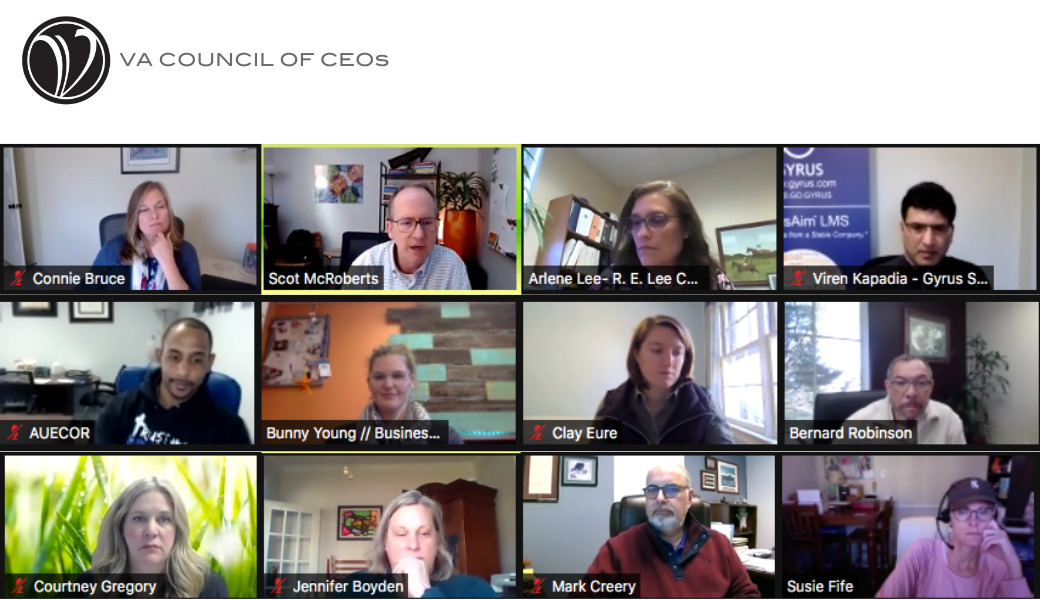
Shaw was a guy at my church. We worked together on lots of things – youth programs, Upward Basketball, service projects, and the like. He was one of those rare individuals who never met a stranger. No matter who you were – a surly teen, a blue-haired matriarch, a young woman in a wheelchair, or a wary kid from public housing – Shaw made you feel good about being there.
At Virginia Council of CEOs, we are doing some long overdue work on diversity & inclusion. Our D&I Committee held its second meeting last week, and we are getting some momentum. Last month, you made have attended Ace Callwood’s brilliant talk, “The Case Against the Case for Diversity.” In a nutshell, he says that the traditional case for D&I – better business results – is old news. Everyone knows it is true, but it doesn’t speak to the real reason that businesses should be doing this work.
When it comes down to it, I want any organization I am a part of to be like Shaw. I want VACEOs to make everyone feel good about being there, especially people who have not traditionally been involved. The business results will follow. And we don’t really need a business case to be like Shaw, do we?
About the Author
Scot McRoberts is the executive director of the VA Council of CEOs (VACEOs). One of the original co-founders, he has led the organization’s growth from 20 members in 2000 to more than 200 today. Utilizing a best practice model for the Council’s CEO roundtables and a dogged focus on its core purpose of connecting CEOs for the purpose of sharing experiences, McRoberts has developed an association that boasts 90% retention. Before coming to VACEOs, Scot was a senior executive at the Greater Richmond Chamber of Commerce, where he led business councils, small business programs, and business retention efforts.
How to Be a Better CEO in 2021

Last year at this time, I asked the members in my peer roundtable “What are your professional development plans for next year?” I was shocked when two of these CEOs said that they had done all that stuff, that they were within 5 years of exiting, and that they really didn’t see a need for it. It seemed like they had decided to just coast to the finish line of their careers.
Maybe when I am closer to retirement, I will have that attitude, but I hope not. I believe that there is unlimited potential for growth, and that if I am to be the leader my organization needs and deserves, I need to work on myself continually.
I think I am a pretty good CEO. So, what’s wrong with being the same kind of CEO again next year? Well, are my competitors sitting still or getting better? Is the pace of change in business and society slowing down? I don’t think so. If I am to lead my business to compete and thrive amidst rapid change and the unexpected (pandemic, anyone?) I must continue to learn and grow.
So I encourage you, my fellow CEOs, to make a decision about how you will grow as a leader in 2021. The options are endless. You could take a class, join a book club, retain a coach, or join a peer roundtable.
Be a better CEO in 2021. Make a decision now on how you will learn and grow.

About the Author
Scot McRoberts is the executive director of the VA Council of CEOs (VACEOs). One of the original co-founders, he has led the organization’s growth from 20 members in 2000 to more than 200 today. Utilizing a best practice model for the Council’s CEO roundtables and a dogged focus on its core purpose of connecting CEOs for the purpose of sharing experiences, McRoberts has developed an association that boasts 90% retention. Before coming to VACEOs, Scot was a senior executive at the Greater Richmond Chamber of Commerce, where he led business councils, small business programs, and business retention efforts.
VACEOs Hires Regional Executive As Org Expands Across Virginia

The Virginia Council of CEOs announced today that Keith Hartman has joined the staff as Regional Executive for Virginia Council of CEOs (VACEOs). Hartman’s main responsibility will be to assist with the nonprofit’s Commonwealth-wide focus on membership representation and growth.
“We are fortunate to add Keith to our team,” says Scot McRoberts, Executive Director, VA Council of CEOs. Adding, “He is a strong believer in the power of peer roundtables, and he understands the challenges that small business CEOs face. He will be a tremendous help as we strive to serve more small business CEOs throughout Virginia.”
Hartman has over five years of experience developing and supporting peer-to-peer roundtables and forums for Vistage Worldwide, the international leader in peer advisory groups and personal leadership development for CEOs and senior leaders. He has experienced first-hand the transformational impact that the sharing of challenges, opportunities, and experiences with trusted peers in a confidential environment can have, and is looking forward to helping the Council expand this concept to all corners of the Commonwealth.
Says Hartman, “Ben Franklin formed quite possibly the first peer group in this country in 1727. He called it the Junto Club. It had 12 members, met weekly, and lasted for 38 years. Napoleon Hill wrote of the power of peer groups as early as 1937. Still today, however, a relatively small percentage of CEOs and business owners have benefited from membership in a peer group, and I am thrilled to be associated with the Virginia Council of CEOs as we take our unique approach to the peer group concept statewide. Our combination of membership impact, benefits, accessibility, and reach are uniquely served to bring the power of peer roundtables to CEOs and business owners throughout all corners of the commonwealth.”
 More About Keith Hartman
More About Keith Hartman
In addition to work for Vistage Worldwide, Hartman has over 30 years of experience in leadership positions with small businesses as well as public and private equity-owned organizations. One of the common threads of his career has been interaction with CEOs, presidents, business owners, and entrepreneurs, from a variety of different perspectives. He was most recently the Director of the Roanoke Region Small Business Development Center, where he worked with aspiring entrepreneurs and owners of existing businesses in an eight-county area of southwest Virginia, helping them with issues encountered throughout the life cycle of a business. A key component of his role was establishing and enhancing relationships with stakeholders and investment partners.
Hartman earned a BA from Juniata College in Huntingdon, Pennsylvania, and has completed a variety of sales, management, and professional improvement programs. His volunteer work includes serving on the board of the Botetourt County Chamber of Commerce, where he is currently the Interim Executive Director as well. He also represents VACEOs as a member of both the Botetourt County and the Roanoke Regional Chambers of Commerce.
About the Virginia Council of CEOs
Virginia Council of CEOs is a nonprofit organization connecting CEOs for learning and growth. Formed more than 20 years ago, Member benefits include placement in a peer roundtable group and access to a thought leader network and a robust program of events for learning and growth. This is not a networking group, but rather a group of CEO peers who are invested in the success of each Member. Learn more at www.vaceos.org.
Related stories:

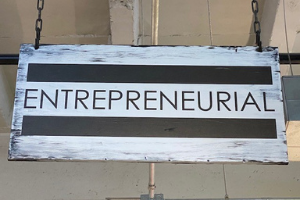
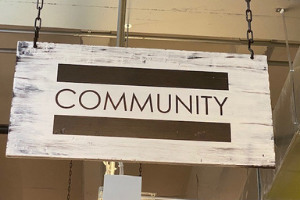

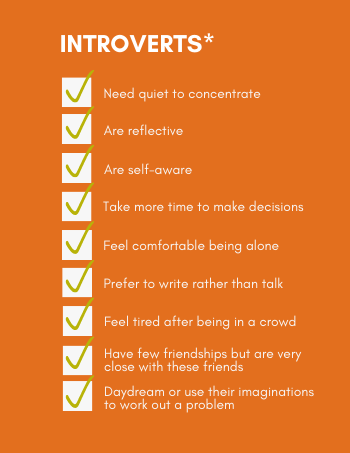

 More About Keith Hartman
More About Keith Hartman
Recent Comments